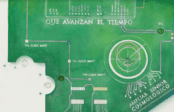Rice University study: Scientists think spirituality is congruent with scientific discovery, religion is not.
More than 20 percent of atheist scientists are spiritual, according to new research from Rice University. Though the general public marries spirituality and religion, the study found that spirituality is a separate idea – one that more closely aligns with scientific discovery – for “spiritual atheist” scientists.
The research will be published in the June issue of Sociology of Religion.
Through in-depth interviews with 275 natural and social scientists at elite universities, the Rice researchers found that 72 of the scientists said they have a spirituality that is consistent with science, although they are not formally religious.
“Our results show that scientists hold religion and spirituality as being qualitatively different kinds of constructs,” said Elaine Howard Ecklund, assistant professor of sociology at Rice and lead author of the study. “These spiritual atheist scientists are seeking a core sense of truth through spirituality — one that is generated by and consistent with the work they do as scientists.”
For example, these scientists see both science and spirituality as “meaning-making without faith” and as an individual quest for meaning that can never be final. According to the research, they find spirituality congruent with science and separate from religion, because of that quest; where spirituality is open to a scientific journey, religion requires buying into an absolute “absence of empirical evidence.”
“There’s spirituality among even the most secular scientists,” Ecklund said. “Spirituality pervades both the religious and atheist thought. It’s not an either/or. This challenges the idea that scientists, and other groups we typically deem as secular, are devoid of those big ‘Why am I here?’ questions. They too have these basic human questions and a desire to find meaning.”
Ecklund co-authored the study with Elizabeth Long, professor and chair of the Department of Sociology at Rice. In their analysis of the 275 interviews, they discovered that the terms scientists most used to describe religion included “organized, communal, unified and collective.” The set of terms used to describe spirituality include “individual, personal and personally constructed.” All of the respondents who used collective or individual terms attributed the collective terms to religion and the individual terms to spirituality.
“While the data indicate that spirituality is mainly an individual pursuit for academic scientists, it is not individualistic in the classic sense of making them more focused on themselves,” said Ecklund, director of the Religion and Public Life Program at Rice. “In their sense of things, being spiritual motivates them to provide help for others, and it redirects the ways in which they think about and do their work as scientists.”
Ecklund and Long noted that the spiritual scientists saw boundaries between themselves and their nonspiritual colleagues because their spirituality facilitated engagement with the world around them. Such engagement, according to the spiritual scientists, generated a different approach to research and teaching: While nonspiritual colleagues might focus on their own research at the expense of student interaction, spiritual scientists’ sense of spiritualty provides nonnegotiable reasons for making sure that they help struggling students succeed.
Source: Eurekalert

The aim of art is to represent not the outward appearance of things, but their inward significance. – Aristotle


















